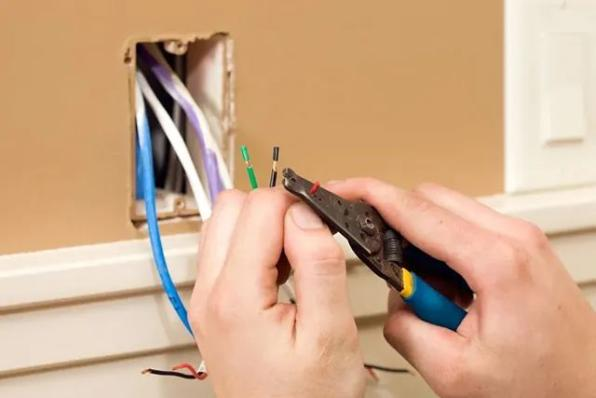Have you ever paid attention to the shelf life of household appliances in your life? The extended service of household appliances not only greatly reduces the efficiency, but also brings hidden dangers to the safety and health of consumers. In order to guide consumers to enhance their safety awareness and form a green, environment-friendly and sustainable consumption concept, the Yantai Consumers Association of Shandong Province recently issued a "over-age" household appliance consumption prompt, reminding consumers that they should regularly carry out safety inspections on appliances that are overdue.
When purchasing household appliances, consumers should learn about the relevant knowledge of the product from the sales staff, check the instructions for use, change the thinking of "no change without damage", and do not confuse "safe service life" with "product shelf life".
Household appliances that have exceeded the service life may have aging, short circuit, overload and other conditions, which may lead to leakage and fire, causing safety risks. Among them, gas stoves may also leak, and air conditioners, range hoods and other products may fall. Therefore, consumers should try to avoid using household appliances that exceed the safety period, and use and replace household appliances according to the requirements of the safety period.
When the smart appliance does not work, it is recommended to set the "sleep" mode automatically. If it is not used for a long time, the appliance power should be turned off in time. Check the wires regularly to avoid potential safety hazards caused by aging of the wires.
As a commodity with a high frequency of use, household appliances are not only easy to breed bacteria, but also affect the performance of appliances after long-term use. Therefore, cleaning and professional maintenance should be carried out in a timely manner as required. For "over age" old appliances, even if they are in good condition, they should also contact the manufacturer regularly for safety inspection. In case of frequent failure, repair or replace it in time.
Household appliances that have exceeded the age limit not only have potential safety hazards, but also have performance degradation, increased energy consumption, and poor sense of experience. It is recommended that consumers consider safety, environmental protection, health, and economy, and timely eliminate and replace "over-age" appliances.
In order to help consumers check by comparison, Yantai Consumers Association has sorted out the safe service life of various household appliances for consumers' reference.
Air conditioning: the service life is about 8-10 years. If the service life exceeds the service life, water leakage, poor cooling, non-cooling and other problems will occur, and the power consumption will increase significantly. The dirt accumulated for a long time will not only produce peculiar smell, but also breed bacteria, viruses, mites, etc. in the air conditioner that has been in service for a long time, which is easy to cause respiratory diseases after long-term use.
When using, avoid frequent switching on and off in a short time; Regularly clean the filter screen of the indoor unit of the air conditioner and the radiator of the outdoor unit.
Refrigerator: The service life is about 12-16 years. Refrigerators that have been used for more than the service life will increase the noise and tremble during operation, and its cooling effect will be greatly reduced. The sterilization and preservation functions will also be seriously degraded, which may lead to the proliferation of bacteria.
Try to avoid frequent startup and shutdown of the compressor; Clean the radiator regularly to leave some space around the refrigerator to ensure good heat dissipation capacity; The interior shall be regularly cleaned of frost and expired food.
TV sets: The service life is about 8-10 years. When the TV sets are out of service, the screen color will be dim, partial, the image is not clear, and the image will shake. At this time, if it is subject to vibration and collision, it may cause short circuit of wires and even explosion of picture tube.
Avoid frequent switching on and off in daily use to prevent power failure; The brightness of the screen should not be adjusted to the maximum for a long time to prevent the lamp from burning; When not in use, it is better to cover the cooling hole with a dust cover to prevent dust from accumulating on the circuit board for a long time to cause failure.
Washing machine: the service life is about 8-10 years, and the "old" washing machine sometimes has problems such as water leakage, short circuit, body heating, etc; The aging of components may cause electric leakage, which may lead to the electrification of the water in the washing machine shell or the washing machine barrel and cause electric shock. The most vulnerable part of the washing machine is the drain pipe, which generally needs to be replaced within 3-5 years. However, if the power cord of the washing machine is used for a long time, the plastic skin is also prone to aging, resulting in electric shock.
Electric water heater: the service life is about 8 years. After the service life of the electric water heater exceeds the service life, the components will age, scale and thicken, the corrosion area will expand, and the leakage risk will increase; The water storage electric water heater is prone to scale on the surface of the heating pipe after long-term use, resulting in poor heat dissipation performance, and the surface of the heating pipe is cracked and damaged, increasing the risk of electric shock.
Water heaters are divided into natural gas water heaters and electric water heaters, which need to be cleaned regularly. You can purchase professional scale cleaner to clean according to the instructions. It is recommended to replace the magnesium rod used to prevent the corrosion of the tank in the electric water heater for 1-2 years to avoid the tank corrosion perforation and water leakage. (Reporter Yin Xunyin)
Source: China Consumer News







